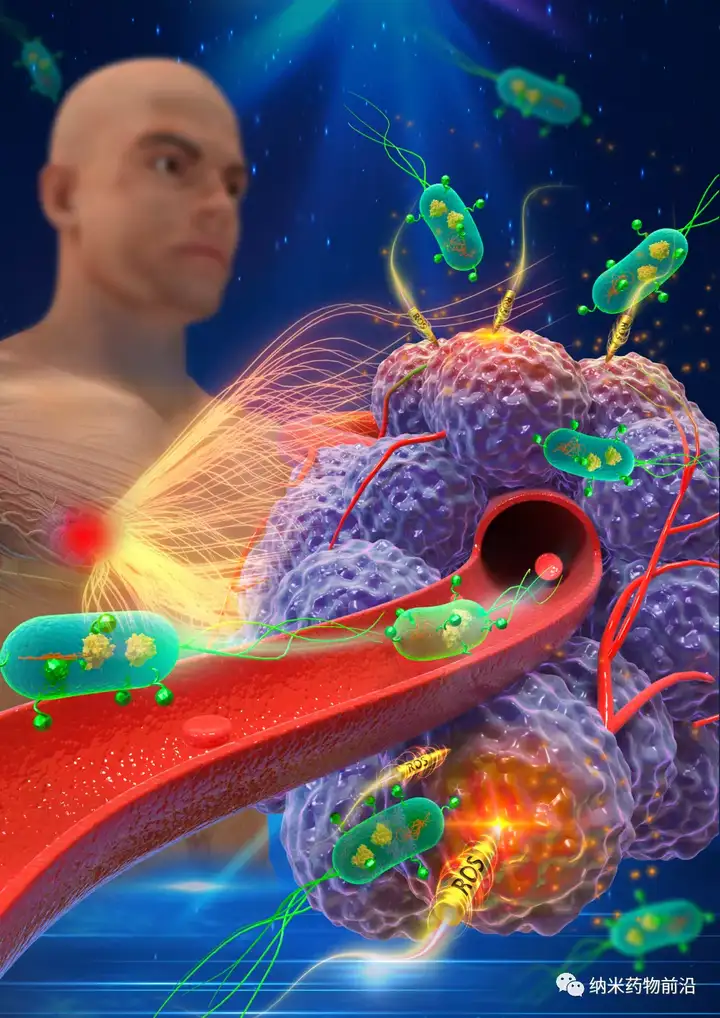The pharmacy team of Wuya Innovation College of Shenyang Pharmaceutical University has made new breakthroughs in the research of bacteria-mediated drug delivery for anti-cancer treatment
QQ Academic Group: 1092348845
Detailed
The research group of Professor Jin Sun from Wuya Innovation College of Shenyang Pharmaceutical University and the research group of Professor Qin Bin cooperated to propose a combination of bacteria-mediated biological therapy and traditional chemotherapy to construct a broad-spectrum anticancer drug-Amycin In order to break through the limitations of current anti-cancer therapy, it provides a new solution for realizing high-efficiency and low-toxic anti-tumor therapy. Related results were published in the internationally renowned biomedical materials journal Advanced Healthcare Materials (IF=9.933, DOI: 10.1002/adhm. 202100950), and was recommended as a cover image highlight by the magazine.

Research Background
Bacterial therapy is a treatment method that targets the tumor site and activates the body s anti-tumor immune response. It has shown great potential in the treatment of malignant tumors. As early as a century ago, Dr. William Colley, the father of cancer immunotherapy, treated cancer patients by injecting Streptococcus pyogenes. In recent years, studies have shown that due to hypoxia, eutrophication and immune specificity in the tumor microenvironment, anaerobic bacteria can preferentially colonize the tumor site and block tumor growth by enhancing the anti-cancer immune response. Among them, attenuated Salmonella, due to its good anti-tumor effect, has been further advanced to clinical phase I trials. However, clinical trials failed due to low tumor suppression rate and dose-dependent side effects. This shows that bacterial treatment alone cannot meet the requirements of high efficiency and biosafety.
Therefore, in order to break through the limitations of existing bacterial therapies, Professor Sun Jin s research group from Wuya Institute of Innovation and Professor Qin Bin s research group collaborated to construct a hybrid bacteria that combines chemotherapy and biological therapy. It is chimerized on the surface of engineered non-pathogenic E. coli expressing glucose dehydrogenase GDH to enhance the anti-tumor effect. The constructed hybrid bacteria can be self-driven and carry adriamycin to target the tumor site. At the same time, the engineered bacteria expressing GDH can catalyze the production of a large amount of NADPH at the tumor site, and the loaded adriamycin can activate the NADPH oxidase NOXs to further catalyze The NADPH cascade increases the level of reactive oxygen species and directly kills tumors; and the hybrid bacteria effectively strengthens the body s anti-tumor immune response by increasing the production of anti-tumor cytokines and effector T cells.
This is after Sun Jin s research group put forward the concept of bacterial-mediated combined biological therapy in the internationally renowned journal Nano-Micro Letters in the field of micro and nanometers (IF=16.419, DOI: 10.1007/s40820-020-00560-9) Useful to try. Professor Sun Jin and Professor Qin Bin from Wuya Innovation College of Shenyang Pharmaceutical University are the corresponding authors of this article. Postdoctoral fellow Sun Mengchi and Dr. Ye Hao are the co-first authors. The article is under the guidance and support of Professor He Zhonggui. Shenyang Pharmaceutical University is an independent unit. This work was funded by the National Natural Science Foundation of China and the National Postdoctoral Post-doctoral Program.
This information is from the Internet for academic exchanges. If there is any infringement, please contact us and delete it immediately
- Previous: Review by Liu Zongwen,
- Next: A Rising 2D Star: Nove


 Academic Frontier
Academic Frontier